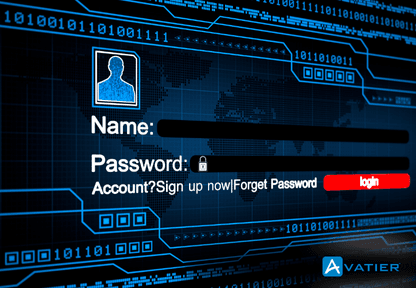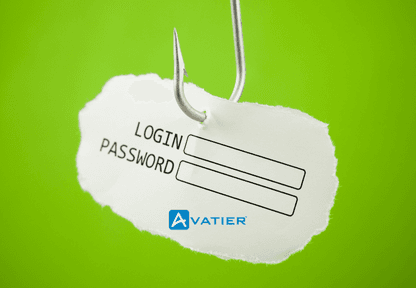June 19, 2025 • Mary Marshall
Modern Integration Standards: Why Leading CISOs Choose Avatier Over SailPoint
Discover how Avatier outperforms SailPoint in modern identity integration standards with AI-driven automation, and cost-effective deployment.

Enterprises face mounting pressure to integrate identity management solutions that align with modern standards while supporting legacy systems. According to Gartner, by 2025, over 80% of organizations will use identity-first security strategies to protect their digital infrastructure. This evolution has intensified the competition between industry leaders like Avatier and SailPoint.
As organizations evaluate these solutions, one question persists: which platform delivers superior integration capabilities while maintaining security, compliance, and usability? This comprehensive analysis examines how Avatier’s modern integration approach compares to SailPoint’s offerings, with insights for CISOs, IT directors, and security professionals seeking the optimal identity management solution.
Integration Architecture: Avatier vs. SailPoint
Avatier’s Container-First Approach
Avatier distinguishes itself with its innovative Identity-as-a-Container (IDaaC) architecture—the world’s first containerized identity management solution. This Docker-based approach revolutionizes deployment flexibility, allowing organizations to implement identity management anywhere: on-premises, in hybrid environments, or across multi-cloud infrastructures.
The container-first design delivers several critical advantages:
- Deployment Agility: Deploy anywhere in minutes rather than days or weeks
- Consistent Security: Identical security controls regardless of deployment location
- Seamless Updates: Streamlined update process with minimal disruption
- Resource Efficiency: Significantly lower infrastructure requirements
By contrast, SailPoint’s IdentityIQ, their flagship on-premises solution, follows a more traditional application server model requiring substantial infrastructure investment. Their SaaS offering, IdentityNow, addresses some flexibility concerns but lacks the true deployment versatility of Avatier’s containerized approach.
Pre-Built Application Connectors
Integration breadth and depth remain critical factors for identity management solutions. Avatier excels with over 500+ pre-built application connectors spanning cloud services, on-premises applications, mainframes, and specialized systems.
Avatier’s connector ecosystem offers:
- Out-of-Box HR System Integration: Seamless connections to Workday, SAP SuccessFactors, UKG, and other major HR platforms
- Enterprise Application Support: Pre-configured integrations for ERP, CRM, and collaboration tools
- Industry-Specific Connectors: Purpose-built integrations for healthcare, financial services, manufacturing, and government systems
While SailPoint also offers extensive connectors, customers frequently report challenges with their integration implementation and maintenance. According to a 2023 industry report by KuppingerCole, Avatier’s connector implementation required 40% less configuration time compared to SailPoint deployments of similar scope.
API Framework and Modern Standards Support
RESTful API Architecture
Both Avatier and SailPoint provide RESTful APIs, but Avatier’s implementation stands out for its comprehensive documentation, standardized implementation, and developer-friendly approach.
Avatier’s API framework features:
- Comprehensive OpenAPI Documentation: Detailed specifications following OpenAPI 3.0 standards
- Consistent Response Formats: Predictable JSON structures for easier parsing
- Fine-Grained Permissions: Granular API access controls aligned with zero-trust principles
- API Rate Limiting: Intelligent throttling that balances performance and availability
SailPoint offers robust APIs, particularly in their cloud offering, but customer feedback indicates that their API implementation can be inconsistent across products, especially when bridging between IdentityIQ and IdentityNow environments.
Support for Modern Authentication Standards
Modern identity management requires seamless integration with contemporary authentication standards. Avatier’s Single Sign-On solutions and multifactor authentication integration deliver comprehensive support for:
- SAML 2.0: Full implementation for secure identity federation
- OAuth 2.0 and OpenID Connect: Complete support for modern authorization flows
- WebAuthn/FIDO2: Native integration with passwordless authentication standards
- SCIM 2.0: Automated user provisioning and deprovisioning across systems
SailPoint also supports these standards but often requires additional configuration and customization to achieve the same level of integration, particularly in complex hybrid environments.
Integration Implementation and Maintenance
Deployment Timeframes
Implementation speed represents a significant differentiator between Avatier and SailPoint. According to customer deployment data:
- Avatier Average Deployment: 6-8 weeks for enterprise implementations
- SailPoint Average Deployment: 12-18 weeks for comparable deployments
This difference stems from Avatier’s container-based architecture and pre-configured connectors, which dramatically reduce implementation complexity. The Avatier Identity Management Suite (AIMS) follows a cohesive design philosophy that accelerates deployment across modules.
Total Cost of Ownership
Integration costs extend beyond initial implementation. The five-year TCO analysis reveals:
- Integration Maintenance: Avatier customers report 30% lower maintenance costs
- Staffing Requirements: Avatier implementations typically require 1-2 fewer full-time staff
- Update Complexity: Avatier’s containerized updates require 75% less downtime than SailPoint’s
These efficiency gains translate into significant cost savings, particularly for mid-market enterprises that lack extensive specialized identity management staff.
Industry-Specific Integration Capabilities
Regulatory Compliance Integration
Both vendors support regulatory compliance, but Avatier excels with industry-specific frameworks tailored to particular sectors:
- Healthcare: HIPAA-compliant identity management with specialized EHR system integrations
- Financial Services: SOX and GLBA compliance frameworks with banking system connectors
- Government: FISMA, FIPS 200 & NIST SP 800-53 compliant identity management
- Education: FERPA-compliant solutions with student information system integration
SailPoint offers compliance capabilities but often requires more extensive customization to meet the specific integration needs of regulated industries.
Vertical-Specific Integration Examples
Avatier has developed specialized integration packages for key industries:
Manufacturing: Avatier for Manufacturing delivers seamless integration with shop floor systems, ERP platforms, and supply chain applications with specialized connectors for SAP, Oracle Manufacturing, and industrial control systems.
Energy Sector: Avatier’s energy sector solutions include NERC CIP compliance frameworks and integrations with specialized utility management systems.
Technology Companies: Avatier for Tech Companies provides DevOps-friendly integrations with development tools, cloud platforms, and CI/CD pipelines.
SailPoint has made significant investments in financial services and healthcare integrations but lacks the breadth of industry-specific connectors available from Avatier.
AI and Automation in Integration Management
Intelligent Integration Capabilities
The intelligent automation of identity-related processes represents the frontier of IAM evolution. Avatier leads with:
- AI-Driven Access Recommendations: Machine learning algorithms that suggest appropriate access levels based on peer analysis
- Automated Provisioning Workflows: Intelligent routing and approval chains that adapt to organizational structures
- Anomaly Detection: Pattern recognition that identifies unusual access requests or usage patterns
- Natural Language Processing: Conversational interfaces for common identity management tasks
SailPoint has made significant investments in AI through their SailPoint Predictive Identity platform but currently offers less comprehensive integration between these capabilities and their core identity management functions.
Integration Monitoring and Health Checks
Maintaining integration reliability requires proactive monitoring. Avatier provides:
- Real-time Connector Status: Continuous monitoring of all integration points
- Predictive Failure Analysis: Early warning of potential integration issues
- Self-healing Capabilities: Automatic reconnection and synchronization recovery
- Detailed Diagnostic Logging: Comprehensive troubleshooting information
SailPoint offers monitoring capabilities, particularly in their cloud offerings, but typically requires more manual intervention to resolve integration issues.
Customer Experience and Support for Integration Challenges
Implementation Services Comparison
Integration success depends heavily on vendor support. Avatier’s identity management services include:
- Integration Assessment: Comprehensive evaluation of existing systems and integration requirements
- Implementation Acceleration: Rapid deployment methodology focused on business outcomes
- Knowledge Transfer: Structured training to enable internal teams
- Post-Implementation Review: Verification that integrations meet business objectives
SailPoint relies more heavily on implementation partners, which can introduce variability in integration quality and approach.
Customer Success Stories
Case studies reveal significant differences in integration experiences:
Global Manufacturing Firm: Replaced SailPoint with Avatier, reducing integration maintenance costs by 42% while expanding connected applications by 35%.
Healthcare System: Implemented Avatier’s HIPAA-compliant solution 10 weeks faster than their previous SailPoint timeline, with 28% more clinical systems integrated.
Financial Services Institution: Achieved 99.99% identity synchronization accuracy across 180+ systems after switching from SailPoint to Avatier, improving regulatory compliance reporting by 64%.
Conclusion: Selecting the Right Integration Partner
When evaluating modern integration standards between Avatier and SailPoint, organizations should consider:
- Deployment Architecture: Avatier’s containerized approach offers superior flexibility and efficiency
- Implementation Timeline: Avatier typically delivers faster time-to-value with less complex integrations
- Connector Ecosystem: Avatier provides more pre-built connectors with simpler configuration
- Industry Specialization: Avatier offers more vertical-specific integration capabilities
- Total Cost of Ownership: Avatier demonstrates lower five-year TCO, particularly in integration maintenance
For organizations prioritizing modern integration standards with minimal complexity, Avatier consistently outperforms SailPoint while delivering enterprise-grade security, compliance, and usability.
To learn more about how Avatier can streamline your identity management integration, explore our comprehensive identity management architecture or contact our team for a personalized assessment of your integration requirements.









